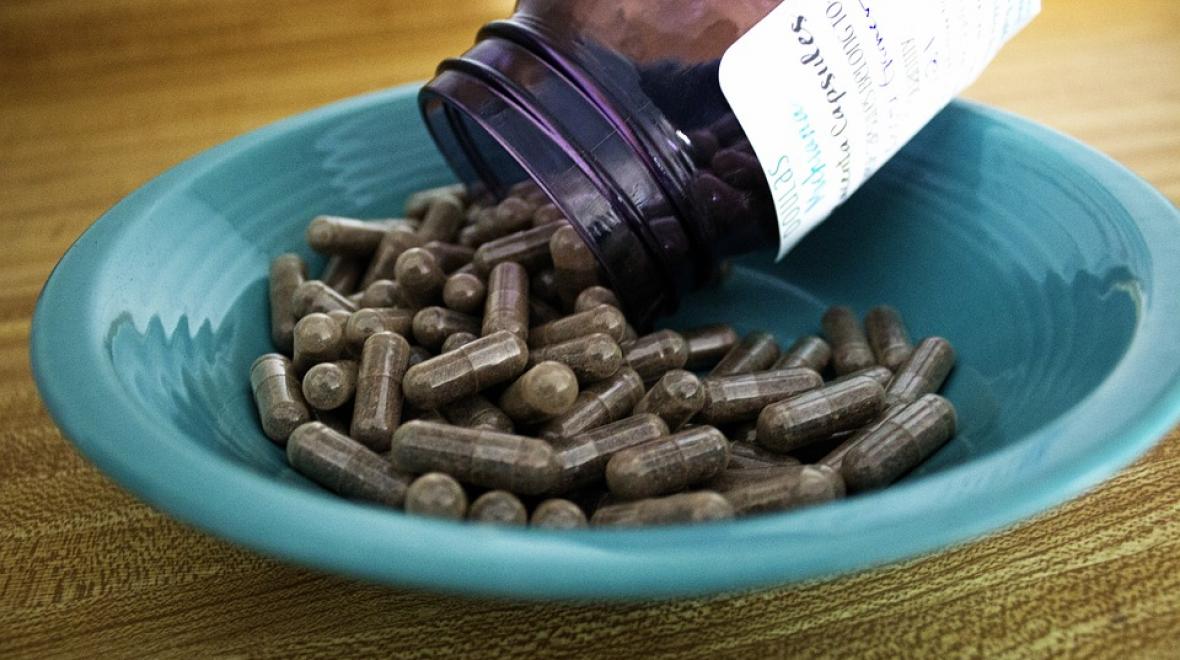
When you’re planning to have a natural, unmedicated birth, it’s pretty much expected that you’ll want to eat your placenta. It sounds revolting, but when you’re high on pregnancy hormones and your prenatal yoga guru spends hours expounding on the benefits of consuming your own afterbirth, it’s an easy sell.
Scared of PPD? Want to increase your milk supply? Looking for a way to promote postpartum healing? Placenta!
Which is how I found myself, at 32 weeks pregnant, meeting with people who preserve placenta for a living. Whether you want it encapsulated as I did, or just portioned out for use in smoothies, there’s someone who can do it — for a not-inexpensive fee, naturally. I selected a Placenta Baker, purchased a small cooler in which to transport my placenta home from the hospital and proceeded to update my birth plan to include “I am encapsulating my placenta. Please set aside to be put on ice.”
At my subsequent prenatal appointment with my OB, I proudly handed him my updated birth plan and announced that I wanted to save my placenta. I expected him to give me a high five — after all, he is THE Doctor known for supporting natural births — but instead he rolled his eyes and gently informed me that there was no scientific evidence in support of the practice and that it’s yet another way pregnant women are being cheated out of their hard-earned money. And then he made me promise that I wouldn’t sell it on eBay if it didn’t work (apparently there’s a huge demand for placenta on the Chinese black market).
I stashed the umbili-heart in a keepsake box and knocked back a handful of placenta pills.
Despite my obstetrician’s protestations, he carefully saved my placenta, which was promptly dispatched to the appointed placenta professional a few hours after I gave birth. Two days later, the Placenta Baker dropped by my house bearing a small glass jar filled with capsules of placenta and topped off with a piece of my son’s umbilical cord that she had shaped into a heart and dried. It was strangely creepy, yet touching, at the same time. I stashed the umbili-heart in a keepsake box and knocked back a handful of placenta pills in the hopes that it would kick-start my milk production.
Sure enough, it worked. My milk came in, and there was so much of it my kid practically drowned every time he nursed. Coincidence? Maybe. But the further proof came later when, right on schedule, the baby blues hit around six weeks postpartum.
If you’ve been spared from the grey cloud of new motherhood, be grateful. It was as though the world just went dark and everything was more horrible than I could possibly imagine. Everything made me cry, but nothing made me feel better. I weeped all of the time. When I wasn’t crying, I was trying to sleep, but I was so overtired that I found it impossible to drift off into slumber. Which, of course, then made me more exhausted and ultimately resulted in my dissolving into sobs yet again. It was a vicious cycle.
One night, my husband came home from work and found me standing in our laundry room sobbing because I couldn’t find the mate for a pair of baby socks. Desperate to help, he said, “Have you tried taking some extra placenta pills?” Thank goodness for my sweet, intuitive husband, who never once questioned my wanting to eat my placenta, despite his skepticism.
I walked to the freezer, tossed back a handful of those little brown capsules, and hoped for the best. I didn’t feel better immediately, but I diligently kept taking the pills, and slowly the fog began to lift. I was able to function again without dissolving into tears, and life (especially motherhood) felt more manageable. As I started to feel better I eased up on the dosage, eventually taking just one or two per day.
I’m done having babies now — two is my limit — but I’ve held on to those jars of precious little pills. I dosed myself with them when I weaned both of my kids, and it helped somewhat with the grief and the transition. I took some pills when my autoimmune disease flared up after all the pregnancy hormones left my body, and I definitely felt an improvement in my symptoms.
I’m sure that my OB would say that it was just a placebo effect and it was all in my head. It’s entirely possible that he’s right, but just in case he’s not, I have a secret stash that I’m planning to use to help me through menopause in a few years. And if that doesn’t work at least I know I can always sell them on eBay.











